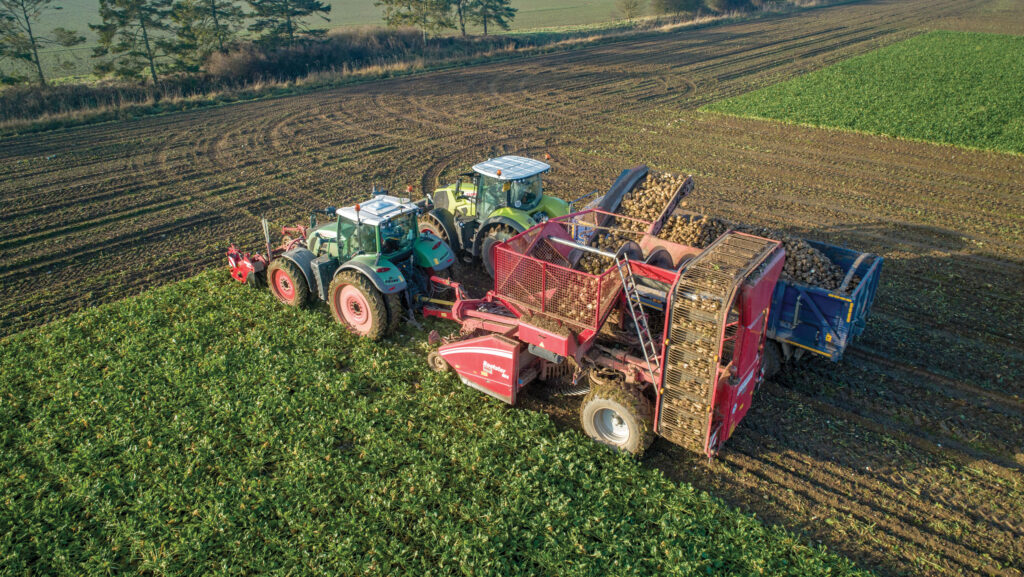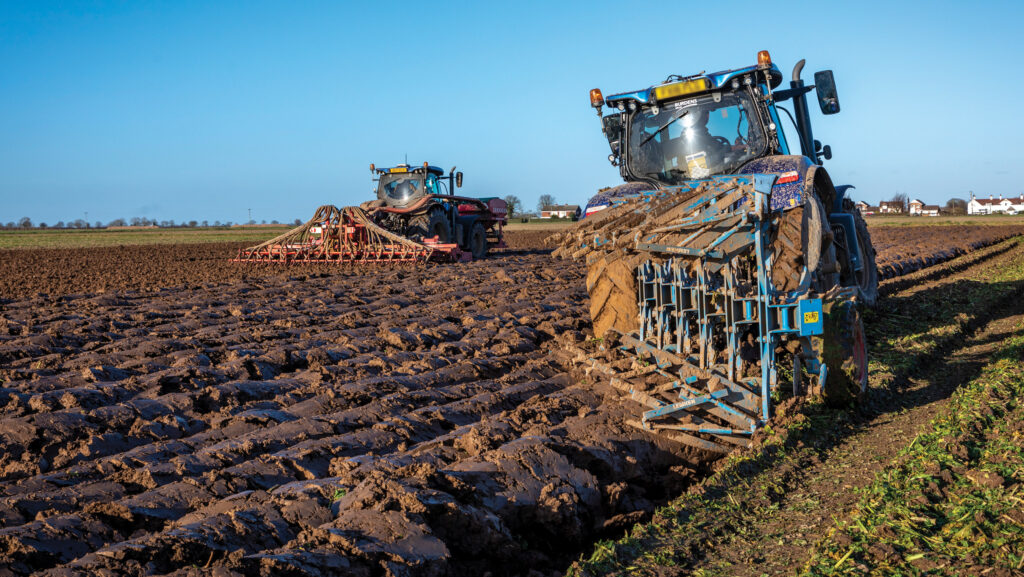Budget highlights need for inheritance document housekeeping
 © GNP
© GNP Regardless of the final outcome of the Budget, there are housekeeping steps that should be taken by farming businesses to ensure things are in place so that when succession, gifting decisions or inheritance occurs, it is as smooth as it can be, say advisers.
See also: How limited partnerships can smooth the succession path
Establish who owns what
Before anything can be transferred, Sarah Dodds, partner and head of agriculture and rural business at accountant MHA, says that it is important to establish ownership.
While this might sound obvious, it is not uncommon for there to be misunderstandings about who owns what and, in particular, whether an asset belongs to the business or to an individual, especially where many years have passed since it was acquired.
This can make gifting or inheritance plans impossible to carry out. If land is not registered, then registration is advisable, although this is a slow process, Sarah says.
Locate deeds
Deeds might be on the farm, held by a solicitor (or several solicitors) or, where assets are used as security for borrowing, with a bank.
Locating them can take time, but is well worth the effort now, rather than when under time pressure or grieving, says Sarah.
Prepare a personal balance sheet
This should be done to list assets for each individual, including rough current values of land and property, and also their base costs for capital gains tax (CGT) purposes, says Sarah.
This will help assess any tax liability, and if gifting is being considered, the decision can be made as to whether to crystalise the gain and pay the tax, or claim holdover relief.
“Don’t forget that a farm tenancy may have a value, and that can be substantial for some AHA [Agricultural Holdings Act] tenancies,” says Sarah.
Blocks of land should be listed, along with where the relevant deeds are and a summary of the land produced, clearly showing where the boundaries lie.
“It’s important that all of this is clear and accurate so that if you need to take action, you’re in a position to do so. It’s a good exercise, but a lot of people don’t do it until the succession is taking place, and that’s when the delays and questions arise. This way, you’ll be prepared.”
Cohabitation, occupancy, pre- and post-nup agreements
Advisers suggest that while pre- or post-nuptial agreements are advisable, so are cohabitation agreements for unmarried children and some other family members
These can protect farm property in the event of a relationship breakdown.
Locate legal agreements
Legal agreements might be a partnership agreement or, in the case of those trading as a company, a shareholder agreement.
These should be reviewed to make sure they are up to date and reflect what is intended.
For example, a partnership agreement should include what happens on retirement, death or incapacity of a partner, in what circumstances the assets can change hands, and how their share of the business is valued.
Wills
Copies of existing wills should be gathered and regularly reviewed as the business and family evolve, remembering that a will is invalidated by marriage or divorce.
“The terminology used in wills is important – for example, we had a case where a farmer’s will left their partnership assets to their son and all other assets to their daughter,” explains Sarah.
“However, the farmer subsequently changed to trading through a company, which would have meant all of his business assets would have gone to the daughter because the partnership no longer existed.
“This was spotted and amended, and in this case was covered by referring to business assets rather than partnership assets or shares.”

© Adobe Stock
Partnership issues
At law firm Thrings, partner Sam Doherty stresses the importance of a well-drafted partnership agreement.
“Without a partnership agreement which states to the contrary, the partnership comes to an end on the death of a partner under statute,” says Sam.
This means the bank will freeze the partnership account on death, causing issues with payments and receipts. Even just for a week, that can have a big impact.
“A new account will need to be opened and the farm will need to operate without access to the funds in the usual account. Borrowing may also become repayable.”
Attempting to gift individual parcels of land that belong to a partnership also causes problems.
“This cannot be done without specific provision in a partnership agreement, you can only leave your share of the partnership assets to individuals, rather than the specific assets which make up that share.”
Business viability
When considering giving away assets, do not do anything that affects the commercial viability of the business, or that you can’t undo without massive costs, warns Sam.
“It is really important to have open and honest discussions with family. It is hard to balance the needs of the farming children and the needs of the non-farming children.
“Trying to divide a farm up equally will usually destroy the commercial enterprise for the farming children.
“Everyone needs to understand that the farm qualifies for agricultural property relief [APR] due to the farming child carrying on the farming enterprise – albeit this relief has reduced in value – and that this in itself has a value.”
There are lots of different ways this can be approached, says Sam.
For example by providing that if land is sold for development in future, non-farming children may receive a share of the proceeds, again drafting this so as not to affect the ability of the farming child to keep farming.
For limited companies, a different class of share can be given to non-farming children and trusts.
Sam also stresses that for tax planning, it is important to document what is going on.
“If the farm has diversified, we need to still be able to show that it is wholly and mainly trading, or that the diversification is a trading business in its own right for business property relief claims.
“Some diversifications can qualify as trading provided certain criteria is met.”
Land occupation agreements
“If any fields are being used by others, the use and terms of use need to be documented correctly to ensure you have the correct rights to remove them, transfer to beneficiaries or just claim the relevant reliefs,” Sam says.
“Handshakes for these cause issues and often the family don’t know the terms of the agreements, which leaves everyone exposed.”
Boundary changes, garden extensions
Boundaries can become unclear over the years, so if there are any issues, these should be sorted out in good time.
Land is sometimes given or sold in small parcels, for example as garden extensions, and it is important that this is properly recorded with the Land Registry, says Sam.
“You can’t simply take land out of agricultural use in this way. It must be properly recorded so that the boundaries are correct on the title.”

© GNP
Lasting Powers of Attorney
These are important and everyone should have them, so that an individual’s financial affairs can be continued if they become incapacitated.
“There can be separate lasting powers of attorney (LPAs) for personal and business matters,” points out Sam.
Gifting and capital gains tax holdover relief
Holdover relief from CGT can be used, but this must be claimed to secure the relief, advises Sam. “Just because you’re entitled to it doesn’t mean it’s in place until the paperwork is done.”
Other considerations
- Wills and partnership agreements need to dovetail so they do not contradict one another
- Review borrowings to make sure they are still appropriate – also check when loans end
- Review or compile current business plans/budgets/cashflows.
Consultant’s view
Like most advisers, Mark Weaver, managing director of consultant CLM, is already seeing more succession conversations happening than he has for many years.
“It’s worth trying to bear in mind that succession planning is not actually about retiring or even dying – it’s about putting your business on the best possible long-term footing,” he says.
“Families may have put this off for a long time but always speak of the huge sense of relief they feel at having grasped the nettle.
“They tell me beginning the process feels like a weight’s been lifted off their shoulders, and it’s never as hard as they feared.”
Mark says that a “letter of wishes” is helpful in addition to a clear, deliverable will.
“A will is a formal document which sets out who will inherit what.
“A letter of wishes is a less formal document saying what a person would like to happen with some of the things not necessarily connected to the business.
“It’s the personal stuff – such as where they might want to be buried or which grandchild they want to have their favourite old Land Rover!
“Clarity on this is important, because everyone will be grieving and it takes away some of the burden of decision-making.
“Executors don’t have to carry out the instructions in a letter of wishes if it’s impractical or too expensive, but it will help guide them.”
Involve all advisers
“It’s also important to make sure your agent or consultant, your accountant and your solicitor are all aware of what you want to happen after you die, and have been involved in writing – or certainly seen – your will,” Mark says.
“If you’ve made a will some time ago, it’s worth checking with your solicitor that it’s still watertight.
“A bad will is one that is drafted in such a way that, although it is legally coherent, it is impractical or impossible to deliver in terms of the business – or is nonsensical from a tax point of view.
“Ideally, you should tell everyone in the family or business what you want to happen on your death, and what’s in your will.”
